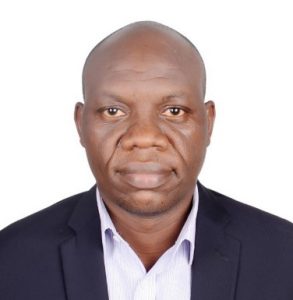Dr Sabastine Akongwale: My PhD in Development Finance experience as a trained economist
Dr Sabastine Akongwale completed his PhD in Development Finance at the University of Stellenbosch Business School (USB). He outlines his journey – from his economic and financial background towards his discoveries from his doctoral research.
I am a trained economist and a public finance management consultant with experience spanning areas of public financial management (PFM); economic policy analysis and governance related issues. Having previously obtained an MSc in Finance from the Manchester Business School as well as an MSc in Development Economics and Policy Analysis from the University of Manchester, United Kingdom, I found the USB’s PhD in Development Finance very interesting. This is because the dynamic and intellectual rigour of the programme availed me the opportunity to blend academic experience with my industry experience as a public finance and governance expert from an African perspective.
…the dynamic and intellectual rigour of the programme availed me the opportunity to blend academic experience with my industry experience as a public finance and governance expert from an African perspective.
My thesis titled “Essays on Fiscal Policy Implementation and Governance in sub-Saharan Africa” entailed a collection of empirical papers that examined the institutional, political and economic forces influencing the fiscal transparency in Africa. Owing to the relevance of my research subject, during the completion phase of research work, I was hired by international development partners such as the Collaborative African Budget Reforms Initiative (CABRI) in Pretoria (sponsored by the African Development Bank) as well as United Nations Children’s Fund (UNICEF) to carry out project studies with bearings on fiscal policy and governance in Africa.
A Synopsis of my Research
Despite the adoption of fiscal rules by many African economies, fiscal policy outcomes remain compromised by weak fiscal transparency. My study was a collection of 3 empirical essays that investigated the institutional, political and economic determinants of fiscal transparency in sub-Saharan Africa (SSA). Our results show that the institutional governance index, political variables including partisan fragmentation and ethnic fractionalisation, and economic factors such as trade openness and debt service determine fiscal transparency in SSA. Hence, to achieve improved fiscal transparency and hence optimise fiscal performance, the study recommends that policy makers should focus reforms on the variables identified by our study.
The study provided new knowledge that relates to the topic and fits the interdisciplinary research approach obtainable at the University of Stellenbosch as it deals with the intersection between economics and political science. It focused on fiscal transparency with considerations for implications of political dynamics and social relations in SSA; where poverty, inequality and unemployment still hold sway in spite of the global attention on this region in the past few decades. Also, the study drew attention to the weaknesses of market-based traditional macroeconomic policies in the absence of adequate institutions. Finally, whilst situating the study in the domain of institutional and political factors, it provided policy prescriptions on the primacy and management of fiscal policy as a tool of economic governance, in a continent where markets are generally ineffective as tools of economic management.
[The study] focused on fiscal transparency with considerations for implications of political dynamics and social relations in SSA; where poverty, inequality and unemployment still hold sway in spite of the global attention on this region in the past few decades.
My Experience at the University of Stellenbosch Business School
I had a pleasant time studying at USB. There was enormous support from the academic and non-academic faculty. The structure of the programme, particularly the colloquia were very helpful too. The feedbacks from the colloquia were more robust than those I received from some of the conferences I attended. The program gave me insight into germane public sector and public finance challenges currently faced by most African states and provided me with experience that I could directly apply to my role as a Public Finance and Governance Expert. It also helped me identify the skills-set I already had and could strengthen. I received world-class support from the Library staff in terms of getting all the study resources I needed. The same goes for the international office that provided me with all the support I needed as a foreign student. More so, the serene atmosphere where the USB campus also makes for great learning with less distraction. I recommend the USB without any reservation to any prospecting student who needs a world-class education at an optimised cost!
I recommend the USB without any reservation to any prospecting student who needs a world-class education at an optimised cost!
Subscribe
Want to stay in touch with the Stellenbosch Business School community? Sign up and receive newsletters from our desk to your inbox.
SIGN UP

